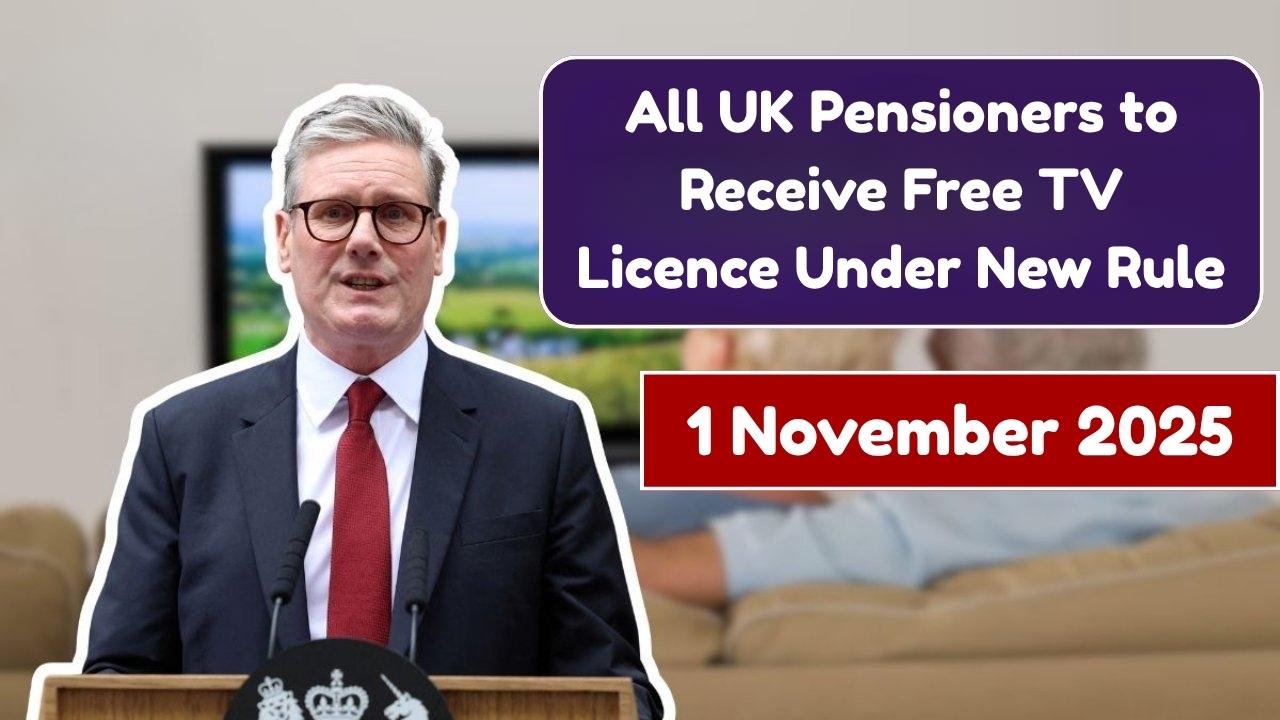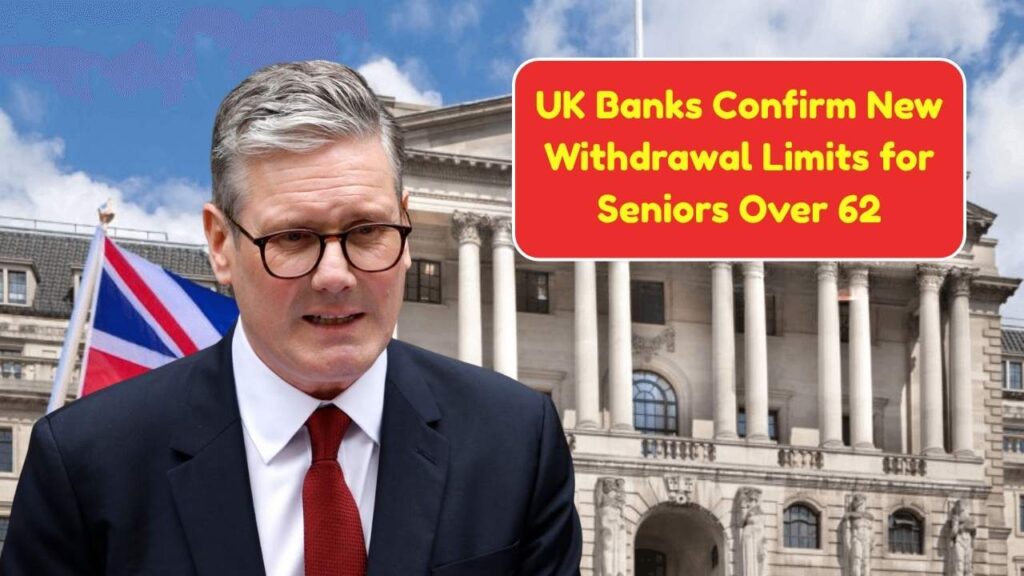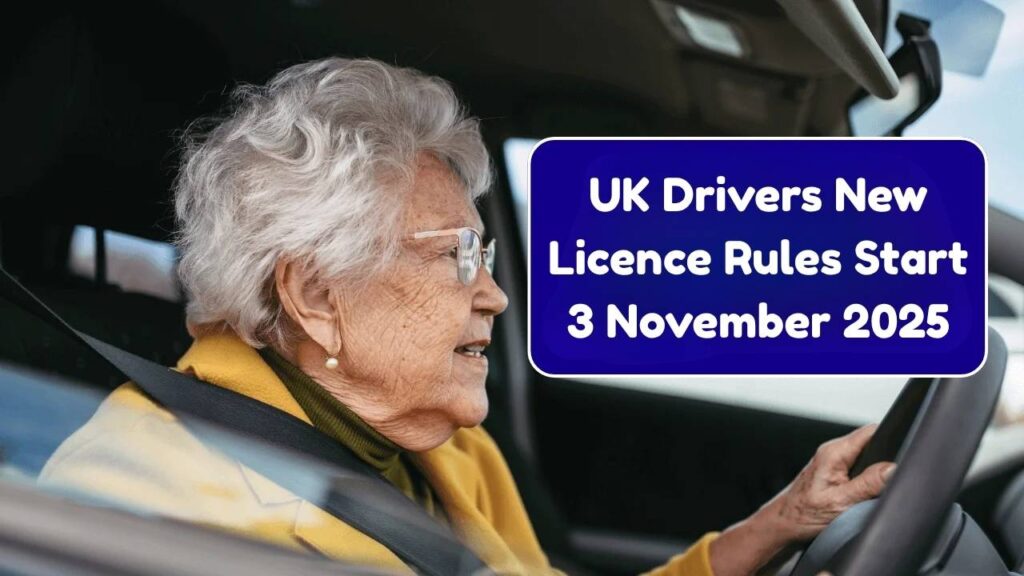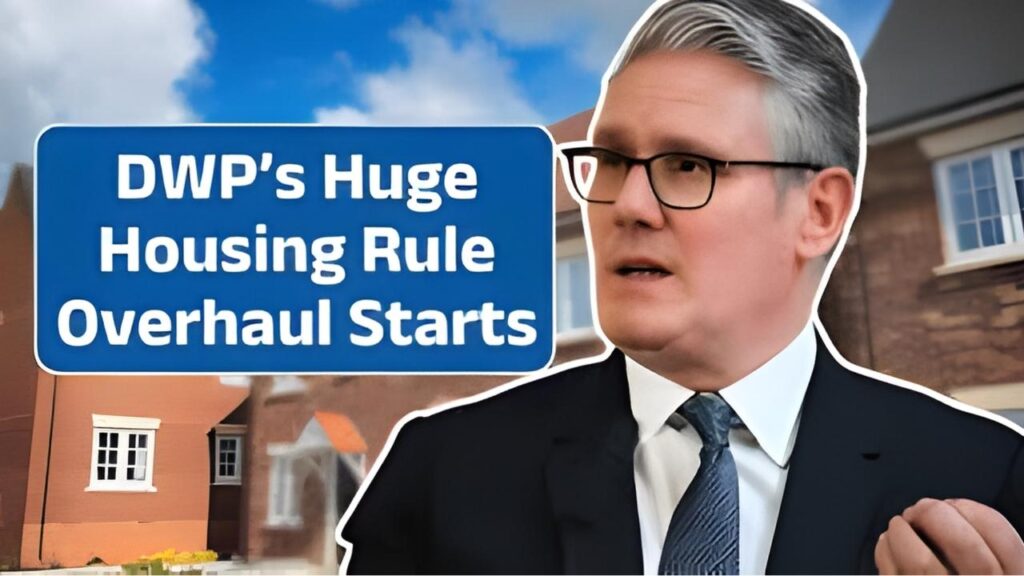The UK government has officially approved a nationwide policy granting free TV licences to all pensioners, bringing a wave of relief to millions of retired citizens. This long-awaited decision marks a major victory for senior advocacy groups who have campaigned for years to restore the benefit that was previously restricted. With living costs continuing to rise, the move is expected to provide much-needed financial ease to older households across the country.
Government Confirms Return of Free TV Licences
In a recent announcement, the Department for Culture, Media and Sport (DCMS) confirmed that all pensioners, regardless of income or living arrangements, will once again be eligible for a free TV licence. This reinstatement follows extensive public debate and growing political pressure on the government to support elderly citizens struggling with everyday expenses.
Previously, the free TV licence benefit was limited to those over 75 who received Pension Credit. However, many older individuals who narrowly missed eligibility were left paying the full annual fee of £169.50. This created widespread frustration, with many pensioners feeling unfairly excluded. The new rule eliminates this restriction entirely, ensuring that every UK pensioner can access television services without financial burden.
Why the Policy Has Been Reintroduced
The government’s decision was influenced by a combination of economic, social, and moral factors. Over the past few years, the cost of living crisis has placed growing pressure on retired citizens, many of whom rely solely on fixed pensions. With rising prices for food, heating, and utilities, even small savings can make a significant difference to older people’s quality of life.
Campaigners also highlighted the emotional and mental well-being benefits of television access for pensioners. For many elderly individuals, especially those living alone, TV is a vital source of information, entertainment, and companionship. Restoring the free licence is therefore seen not just as financial aid but as a step toward combating loneliness and social isolation among seniors.
According to a senior government spokesperson, the move represents “a reaffirmation of our commitment to dignity and respect for pensioners.” They added that the reform is part of a wider strategy to make retirement in the UK fairer and more supportive for those on limited incomes.
Who Qualifies for the Free TV Licence
Under the new policy, all individuals aged 66 and over — the current State Pension age — will qualify for a free TV licence. This applies regardless of whether they receive Pension Credit or any other benefits.
The initiative covers both live television and BBC iPlayer access, allowing pensioners to enjoy their favourite programmes without worrying about annual renewal fees. The BBC will coordinate the implementation of this new rule in partnership with TV Licensing to ensure a smooth transition for all eligible citizens.
Existing pensioners who already hold a paid licence will automatically receive refunds or renewals for the coming year. Those who recently turned 66 or are about to retire will be able to apply through a simplified online form or by contacting TV Licensing directly via post or phone.
Financial and Social Impact of the Decision
For millions of pensioners, this decision translates into real financial relief. Saving nearly £170 per year may not seem substantial to some, but for those living on a modest pension, it can help cover heating bills, groceries, or healthcare costs.
Charities such as Age UK and the National Pensioners Convention have applauded the government’s action, calling it a “long-overdue victory for fairness.” They note that this policy will help reduce financial anxiety among older citizens who often face difficult choices between paying essential bills and maintaining social connections through entertainment.
Television remains one of the most accessible and affordable forms of leisure for the elderly. Studies have shown that consistent access to familiar programming can enhance mental well-being, reduce feelings of isolation, and keep pensioners informed about national and community news.
BBC’s Role and Reaction
The BBC, which previously faced criticism for removing free licences from most pensioners in 2020, has pledged full cooperation with the new government directive. In a statement, the corporation acknowledged the importance of television in seniors’ daily lives and expressed its readiness to work closely with the government to ensure efficient implementation.
Officials from the BBC have also suggested that the organisation may receive additional funding to offset the financial impact of offering free licences. Negotiations are underway to finalise how the costs will be shared between the broadcaster and the Treasury.
Public and Political Response
Public reaction to the announcement has been overwhelmingly positive. Many pensioners and their families have praised the move as a sign that the government is finally listening to the concerns of older voters. On social media, users expressed gratitude, noting that the policy restores a sense of fairness that was lost when free licences were scrapped several years ago.
Opposition parties have also largely welcomed the decision but have urged the government to go further by improving pension payments and offering additional support for energy costs. Critics have pointed out that while the free licence is a step in the right direction, it does not fully address broader financial struggles faced by retirees in a high-inflation environment.
When the New Rule Takes Effect
The free TV licence policy will officially come into effect on 1 January 2026, though some regions may begin implementation earlier as part of a phased rollout. Pensioners who are currently paying for their TV licence can expect communication from TV Licensing in the coming months outlining the next steps.
Those who have already renewed their licence for the coming year will receive either a credit toward future years or a full refund once the new system is in place. The government has assured that the transition process will be straightforward, requiring minimal paperwork for eligible pensioners.
Looking Ahead
This landmark change represents more than a financial gesture — it’s a symbolic recognition of pensioners’ contributions to society. For decades, older citizens have played a central role in building the nation’s economy, communities, and culture. Restoring the free TV licence acknowledges that contribution and ensures they can enjoy their later years with dignity and comfort.
As discussions continue about other potential benefits for retirees, such as enhanced winter fuel payments or transportation discounts, the free TV licence marks a major milestone in improving the day-to-day lives of the UK’s older population.
Conclusion
The reinstatement of free TV licences for all UK pensioners stands as a powerful example of social responsibility and compassion in government policy. It not only provides financial relief but also reinforces the importance of inclusion and respect for the elderly. As millions of retirees prepare to benefit from this reform, the decision is being celebrated as a long-awaited step toward a more equitable future for all generations.
Disclaimer
The information provided in this article is for general informational purposes only and does not constitute official government advice. While every effort has been made to ensure accuracy, policies and eligibility criteria may change over time. Readers are advised to verify the latest updates directly through official UK government or TV Licensing sources before making any decisions. The author and publisher are not responsible for any losses or misunderstandings arising from the use of this information.



